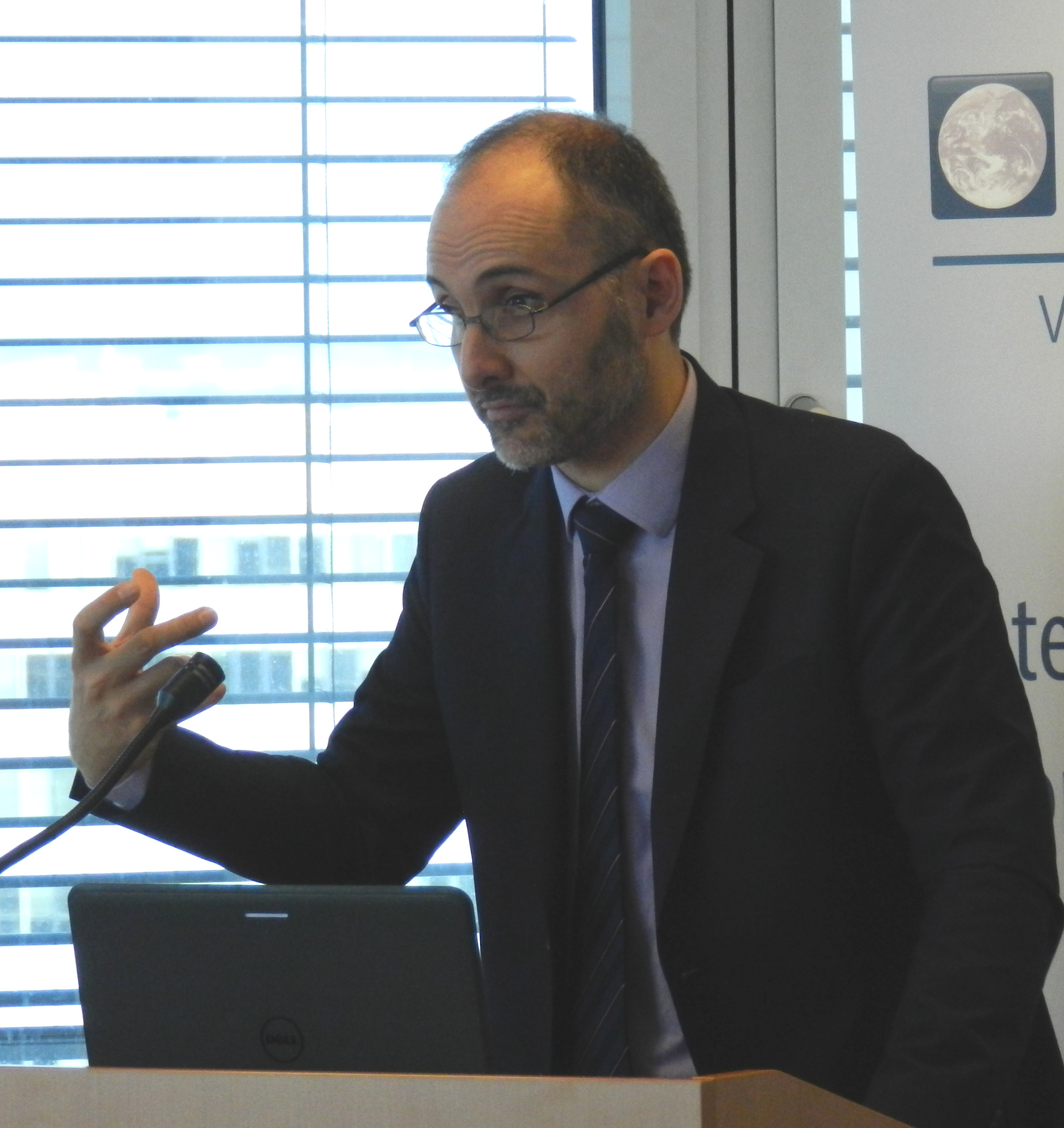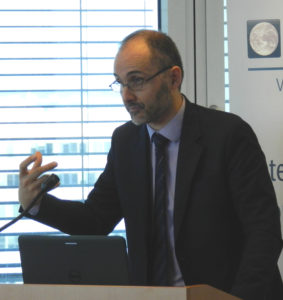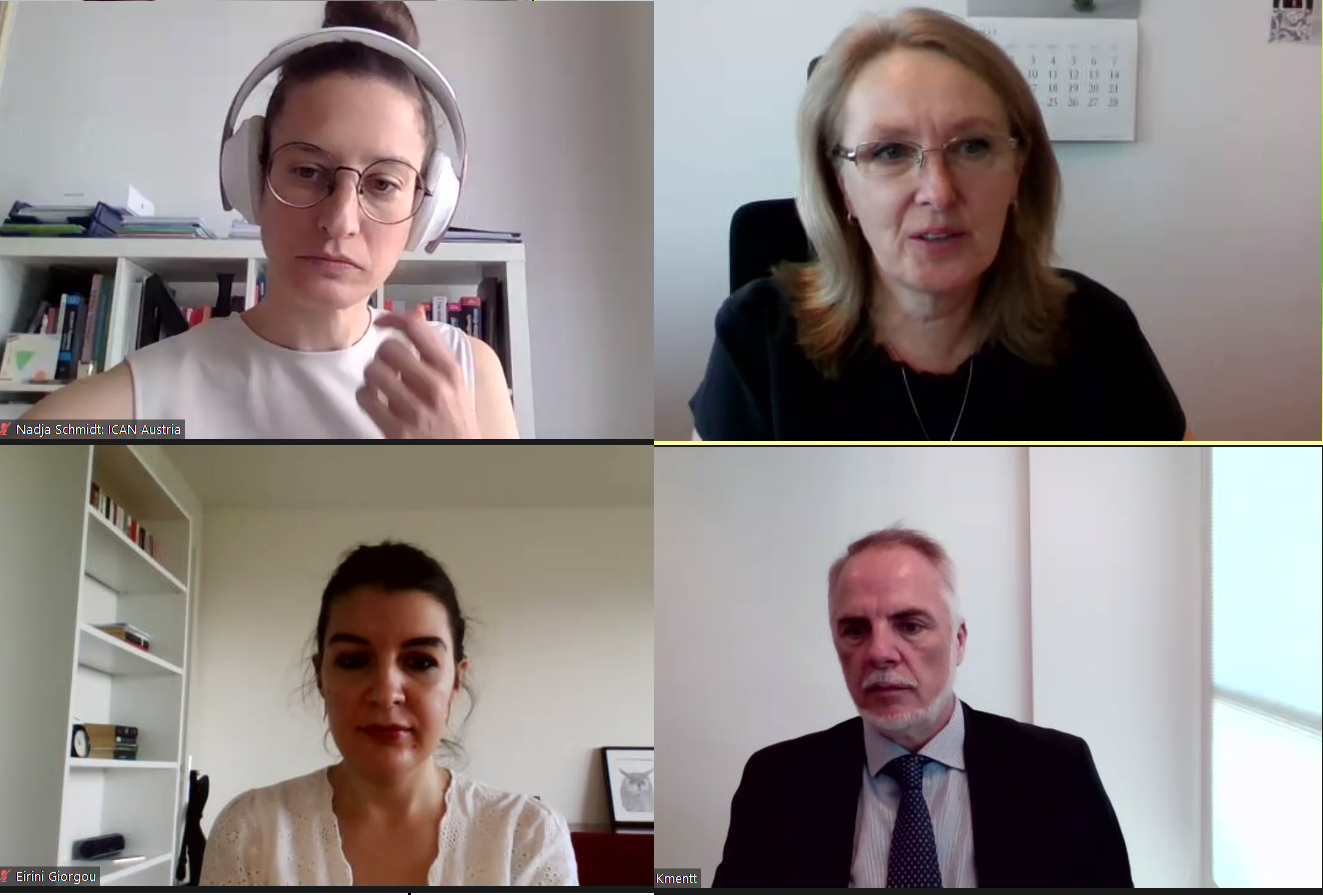
On 16 October 2019, the VCDNP hosted a seminar with Benoit Pelopidas (Sciences Po) titled ‘Europeans Facing Nuclear Weapons Challenges: What do they know? What do they want?’. The event was moderated by Elena Sokova, Executive Director of the VCDNP. Dr. Pelopidas presented the results of his ongoing study examining the validity of the common assumption in Europe about public attitudes on nuclear weapons policy. The study is based on surveys of citizens in nine European states: those possessing nuclear weapons (France and the United Kingdom), nuclear host countries (Belgium, Germany, Italy, the Netherlands and Turkey), as well as Poland and Sweden.

Dr. Pelopidas observed that nuclear policy-making in Europe is largely determined by experts in and outside governments, or “guardians,” who, using their position of authority, not only shape policy, but also determine the range of choices put to politicians and the public. The study by Dr. Pelopidas and his colleagues revealed a major disconnect between the established framework of nuclear policy making (the “guardians”) on the one hand, and the preferences of the public on the other. In this situation the public feels that the current system does not allow them to express their opinion and feels powerless as a result of failed attempts to develop alternative modes of governance on nuclear weapons issues.
He characterized the state of discourse in Europe as “epistemic vulnerability.” While nuclear policy appears to enjoy solid support in Europe as a tool for ensuring security, that appearance may be misleading as it is defined primarily by the unique form of authority of “guardians” delivering public message. In fact, over half of respondents expressed fear or depression at the thought of nuclear weapons or nuclear war and many of them expressed a very low level of trust in authoritative figures; he identified this phenomenon as epistemic vulnerability.
Dr. Pelopidas addressed five common assumptions about the inevitability of the special role of “guardians” showing that none of them were empirically grounded.
Dr. Pelopidas explained that the case for “guardianship” was simply an example of ‘nuclear panglossism’, a theory arguing that although the world is far from ideal, all the other possible worlds would have been worse. He said that supporters of this theory argue that building up arsenals during an arms race and then dismantling them is better than alternative scenarios where reductions would not have happened. Public opinion surveys, however, demonstrated that there is little support for the notion that the current state of affairs is the best of possible options.
Conclusions drawn from the study show that the existing nuclear governance does not make the public feel empowered. The survey found that the people did not want a situation of guardianship where they have no say on nuclear policy. Dr. Pelopidas emphasized strong need in an educational effort starting with an identification of gaps in the public knowledge about nuclear weapons and policy. He also suggested that education in nuclear policy matters should begin at high school level to ensure the comprehensiveness of coverage both in terms of involvement and substance.
In the ensuing question and answer session, attendees raised the possibility of extending the geographical scope of the survey to Russia, the Asia-Pacific or the Americas and continuing it after 2019 given the pace of change in the disarmament and non-proliferation architecture.



By continuing to use the site, you agree to the use of cookies. more information
The cookie settings on this website are set to "allow cookies" to give you the best browsing experience possible. If you continue to use this website without changing your cookie settings or you click "Accept" below then you are consenting to this.